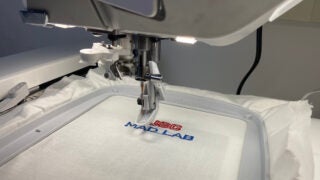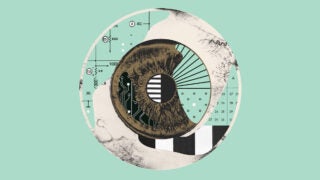Awards were given to two USC research teams to fund collaborations between engineering and one or more of the university’s five health sciences schools.
Biomedical Engineering
News Listing
USC Viterbi researchers have designed particles that can light up the lymph node cancer cells otherwise undetectable by MRI.
Researchers are using embroidery and lasers to create cutting-edge sensors for wearables and personalized health care.
The engineering school celebrates the newly named Alfred E. Mann Department of Biomedical Engineering.
USC Viterbi engineers harness ultrasonic waves to capture extraordinary images of glass frogs, which dodge predators by making themselves transparent.
The substantial gift from innovator and physicist Alfred E. Mann will expand USC’s activities at the intersection of health sciences and engineering.
The USC Viterbi assistant professor of biomedical engineering will use the $2.3 million award to create sensors that will have game-changing applications for disorders such as Alzheimer’s Disease.
The agreement creates dynamic interdisciplinary educational tracks for students in the rapidly growing, high-demand fields of biomedical engineering and regulatory science.
Electronic eyes, robotic arms and exoskeletons? USC experts meld man (and woman) with machine.
Using tools such as force plates and high-speed video, Jill McNitt-Gray helps competitors in the horizontal jumps reach peak performance and avoid injury.









